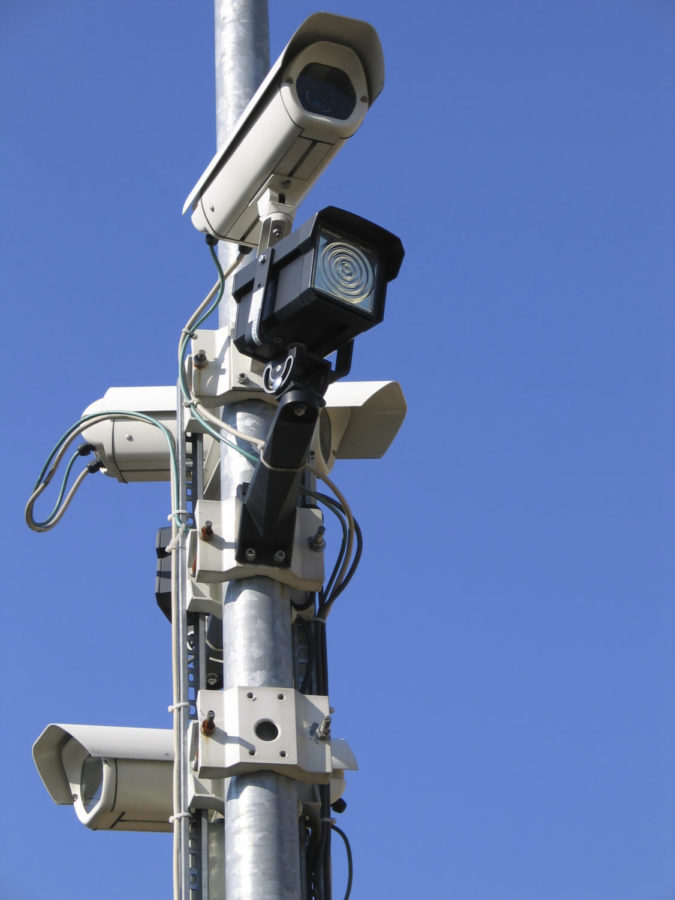City council considers cameras for Campustown
Cameras
June 27, 2012
The Ames City Council is considering installing surveillance cameras in Campustown, as well as improving the lighting in the area.
Charles Cychosz, Ames chief of police, said in a report to the council Tuesday night that both issues need to be addressed. He pointed out that other Big 12 universities have lighting and surveillance in their downtown areas that are superior to Ames.
Cychosz said that the benefits to the police department are clear, but there are other privacy concerns, of course.
When people know they are being watched, “public hesitation and caution is a natural reaction,” Cychosz said.
The city ran a test of a possible system during Veishea this year and had several cameras up and running in Campustown throughout the week.
Sawyer Baker, ISU student representative to the council, said this issue had been brought up to the Government Student Body previously, after the council proposed the initiative last July. Baker said GSB had fully supported the lighting initiative but was less enthusiastic about the cameras, although they did eventually vote to support those as well.
GSB’s concerns were that the cameras would provide a false sense of security — that the cameras do not actively protect anyone but merely provide evidence which is useful for follow-up to an incident.
Cychosz said retroactive review is what is sorely needed, especially in incidents involving assault. Participants and observers’ memories are often unclear after fast-moving situations. And in cases where the courts need to determine who is responsible for medical damages, it helps to have a clear and accurate depiction of what happened. He also pointed out that courts are increasingly looking to video evidence to substantiate witnesses’ accounts.
Councilwoman Victoria Szopinski agreed to the privacy concern, saying “We know it’s a complicated issue, and that it’s a national issue. … I think there are a lot of details that have to be worked out: How video is used, who sees it, who has access to it, when is it used, is it just for certain kinds of crime situations? And I have concerns about public record.”
Szopinski said, as the law stands, any video recorded in public becomes a public document, and anyone could have access to it.
Cameras are already in place in Ames police patrol vehicles. The cameras begin to record when the sirens are turned on, when manually started by police or prior to a crash.
But Councilman Jeremy Davis said there is a distinct difference between occasional recording when prompted and constant monitoring.
“I’m a little leery on the whole ‘Big Brother watching over me’ concept,” Davis said.
The council ended their discussion with a decision to gather more research on the cameras, as well as the potential upgrade to LED lights downtown.
Councilman Matthew Goodman, owner of Smiles & Gyros and co-owner of The Fighting Burrito, said he would bring the issue to the other Campustown business owners.










